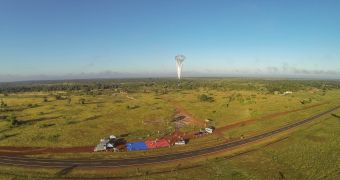A Google Loon Wi-Fi balloon caused panic in New Zealand as a mishap took one down and caused people to call in the emergency services saying that a plane had crashed.
Before investigating any planes that had gone off the radar, authorities sent out a rescue helicopter to investigate the wreckage somewhere off the east coast of New Zealand’s South Island.
The company has been testing out its balloons for over a year, a milestone it has recently reached. These are set to create a network of balloons at high altitudes and offer those on the ground an Internet connection.
The purpose of this entire project is to provide Internet to those who don’t have access to this technology, most often due to the remote location they live in, where the infrastructure has yet to expand.
Google has been trying to learn how to control the balloons with the help of the winds, making them to up and down to maintain their spots. But things don’t always go as planned, as exemplified by this accident.
The company has reportedly confirmed that one of its balloons “landed” in the sea off New Zealand, but that’s mildly put. Perhaps a more accurate term is “crashed,” since the team was unable to keep the balloon in a single place and up in the air because of heavy winds in the area.
Google has a team that has been coordinating with the local traffic control authorities and that’s always ready to recover the balloons when they land.
The Loon project is part of Google’s larger efforts to bring Internet access to people from all over the world, which is also the motivation behind the purchase of Skybox Imaging, a company that makes its own satellites. Since rumor has it that Google wants to step things up a bit and take its Internet broadcasting efforts off Earth and into space, the purchase makes quite a bit of sense.
Mix this up with the rumored negotiations that are supposedly underway between Google and Virgin Galactic to help put thousands of satellites into Earth’s orbit and you’ll understand just how serious the company is about bringing the entire world online.
There are currently billions of people out there that do not have an Internet connection, so there’s a race to lure in more and more people. Facebook, too, has been known to undergo similar efforts.

 14 DAY TRIAL //
14 DAY TRIAL //